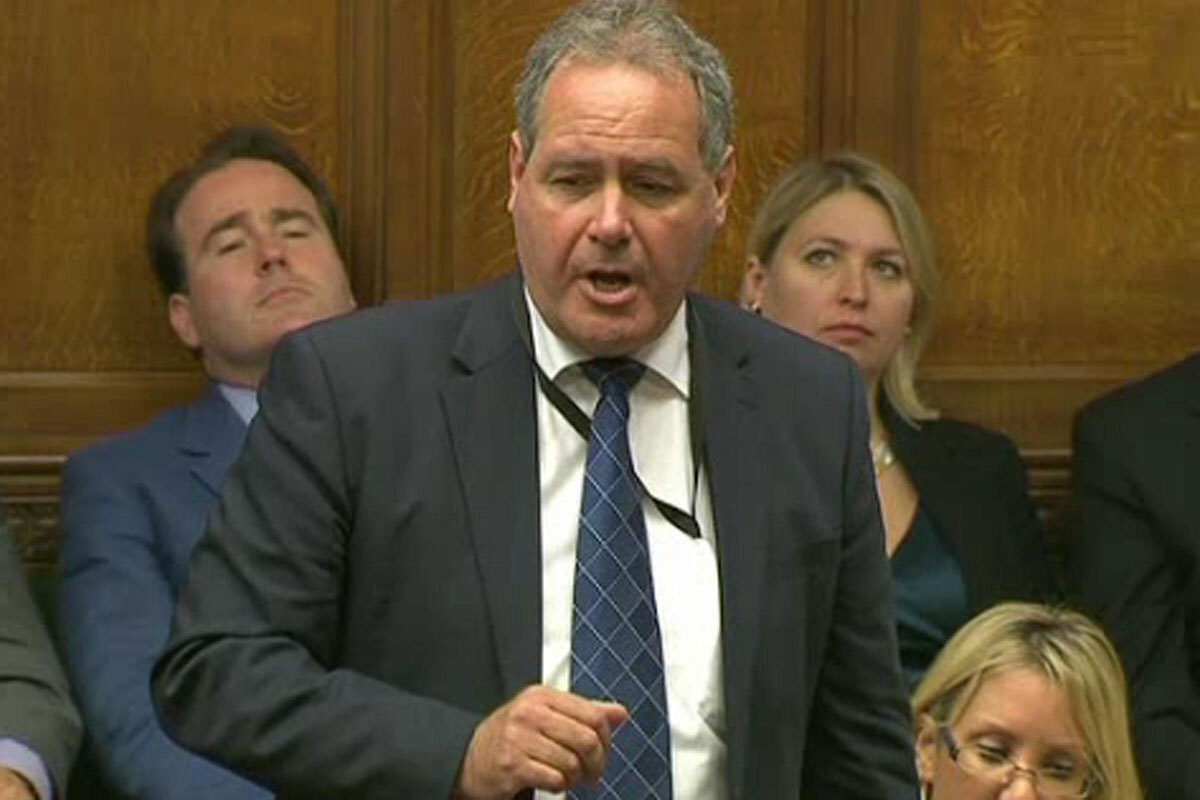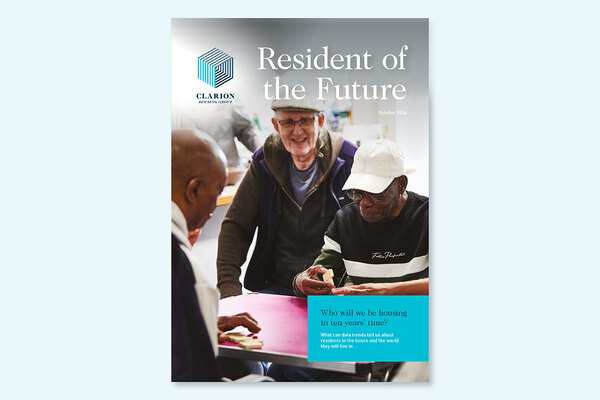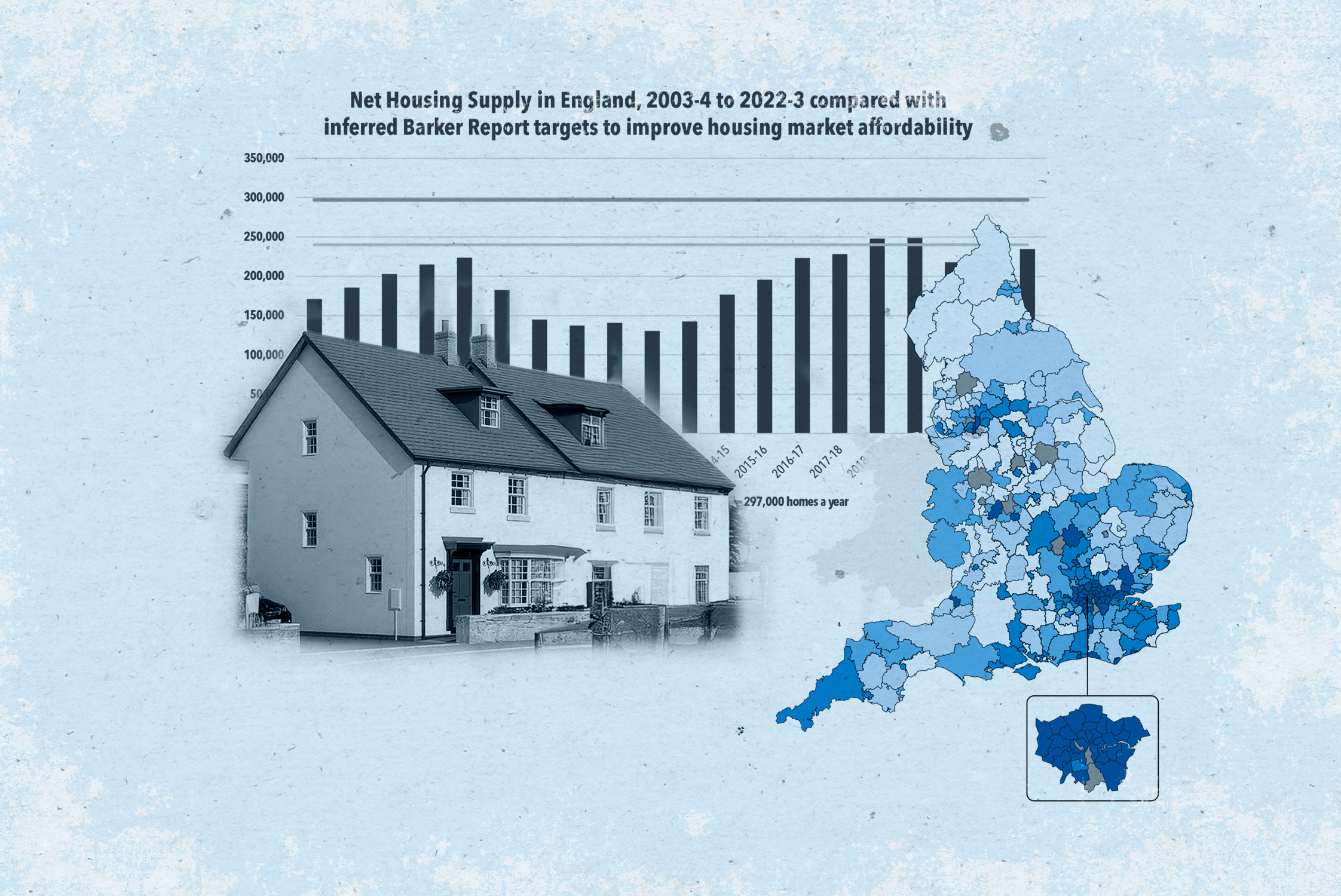You are viewing 1 of your 1 free articles

The select committee report on exempt accommodation was spot on – but it missed one crucial point
The Levelling Up, Housing and Communities Committee’s report on exempt accommodation is spot on, but for one glaring omission, says Ashley Horsey
Talk of organised crime groups “cashing in”; accounts of assault, intimidation and exploitation; and large swathes of individuals or businesses reaping the rewards of “the gold rush”. You’d be forgiven for thinking that this was a congressional hearing on the failures of Prohibition in 1920s America. But it’s not. These are the words contained within the Levelling Up, Housing and Communities (LUHC) Committee’s report into exempt accommodation, published last week.
The select committee of MPs rightly acknowledge from the outset that these colourful and shocking remarks reflect only the very extreme end of the spectrum, and that there are indeed many good providers of exempt accommodation – a point that Commonweal has long stressed.
But the much-anticipated report does paint a very real and sobering picture of exempt accommodation: that this is a system that for too long fell foul to exploitation of vulnerable people and of financial gaming by unscrupulous housing providers. In the words of the report, it has been “a complete mess”.
In a document spanning 65 pages, it cuts to the heart of a myriad of issues that have long troubled this sub-sector of supported housing. The report recalls the worst instances of the human harm that decades of under-regulation have caused to the individuals who have lived in this housing. It notes the, at times, “appalling” conditions of some exempt properties, as well as the complete lack of oversight and accountability, and picks apart the multifaceted and complex models and structures that exist within the exempt accommodation system.
The recommendations made throughout the report are the right ones. Indeed, many of the issues that Commonweal has campaigned on this past year and suggested in both written and oral evidence sessions were included, which we are grateful for.
Local authority strategies, an accreditation scheme, the compulsory registration of providers, and national minimum standards across exempt accommodation were all adopted as key recommendations to government.
We are, of course, very pleased that the committee captured many of the issues at hand and that it has offered well-considered recommendations. There is, however, one significant omission.
I wanted to take the opportunity of this column to address this point, which I did raise as a witness to the committee in my session, but which appears to have been omitted from any forward-looking thinking. I do so because the failure to consider it leaves the potential to derail the hard and very important work that so many across the sector and beyond have done in driving change around exempt accommodation.
“With the right accommodation and the right support, and if the transitional sector is doing its job properly, people can and should be able to leave their past issues behind them”
We in the housing sector and government are dealing here with an entangled mesh of housing types that vary in quality and serve highly diverse groups of vulnerable people, all governed and regulated by a plethora of bodies and delivered by organisations that often employ labyrinthine structures.
This is to say that this is a complicated matter. However, within this maze there are two very distinct forms of housing provision, and by extension, two very distinct groups they serve.
The first form includes the short-term, transitional uses of exempt accommodation, which aim to prevent homelessness and respond to immediate housing need. This is typically where the most flagrant abuses of the system appear.
The purpose of this should be exactly what it says on the tin: designed for vulnerable people to live in short term, during a period in which they require immediate accommodation and support, and whereby they are making an often-difficult transition – addressing one or more specific hurdles they need to overcome.
Those who have recently exited the prison system, have left behind street homelessness or have recently been granted refugee status are just a few examples.
The core feature should be that with the right accommodation and the right support, and if the transitional sector is doing its job properly, people can and should be able to leave their past issues behind them.
The second primary use of the exempt accommodation rules is vastly different. It serves those with ongoing needs, where the care and support function of exempt accommodation is often more specific and the housing element is for life, frequently with personal support commissioned by public bodies.
Typically, these much-needed lifetime homes will support disabled or older people. The difference being that the support required will, for most, last a lifetime.
There is a very clear distinction – a duration divide – between these types of groups and their needs, and this distinction needs to be addressed in any (hopefully) forthcoming policy changes.
Without understanding the two as distinct entities, we run the risk that catch-all policymaking will create unintended consequences.
From discussions that I have had with providers operating exempt lifetime homes, it is clear that they have justifiable concerns that any new regulations – which will almost exclusively be devised and enforced with the exploitative transitional exempt providers in mind – may directly impede them.
If the government were, for example, to introduce a local authority accreditation scheme that granted them powers to reject any new schemes – which is an issue we have campaigned for and is included within the report – then, without this distinction in policy, the council may reject a much-needed new scheme that intends to support people with severe physical disabilities on the basis that their “exempt accommodation quota” is full.
This may sound slightly obtuse, but it does go some way in depicting a scenario where well-intentioned policies come up against a real-world brick wall.
“Without this distinction in policy, the council may reject a much-needed new scheme that intends to support people with severe physical disabilities on the basis that their ‘exempt accommodation quota’ is full”
These problems need not emerge. We are hardly boiling the ocean here. Making this distinction between fairly contrasting housing types and uses, but employed under the same rules, shouldn’t be beyond the wit of humans, and we intend to continue to use our independent, non-vested interest and nuanced voice in this space to push for some form of separation between the two.
But on the flip side, I am also aware that, with this potential snag in the way, stakeholders in the lifetime home space may become slightly thorny, and while understandably protecting their own interests, actually prevent or postpone some of the important progress being made in this sector.
There need to be many new rules, and they should be applied equitably. But in doing so we cannot throw the baby out with the bathwater and implement one-size-fits-all policies.
Those of us who have been working in or around exempt accommodation understand the levels of complexities at hand here. As does the committee, clearly illustrated by this detailed and on-the-mark report, and the government, which has been making the right noises for some time now.
But as we near what will hopefully be the latter stages of this more troubled period for exempt accommodation, noises are no longer enough. Swift and serious policymaking is the only thing left on the agenda.
Given how complex the system is, delays are understandable. But if we are to successfully reform the sector and ensure the provision of safe and sustainable housing and support for those who need it, be it at the transitional or the lifetime end of the spectrum, the new rules must meet the intricacies of the system.
No one said this would be easy, but making this duration divide should be.
Ashley Horsey, chief executive, Commonweal Housing
Sign up for our care and support newsletter
Already have an account? Click here to manage your newsletters












